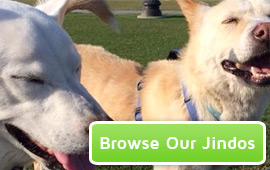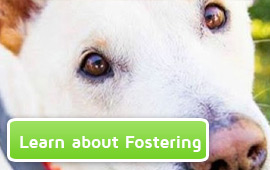Things to know about Jindos!
Things to know about Jindos!
Management
• Jindos are not for people in a rush – they appreciate considerate and thoughtful owners.
• Don’t absent yourself from training sessions – both Jindo and owner(s) should train together.
• They can be challenging through (potentially long-lasting) puppyhood and adolescence.
• Do: provide structure, routine, consistent and fair leadership, and positive reinforcement.
• Don’t: use sustained negative reinforcement & positive punishment.
• Jindos are intelligent: they can learn commands quickly (but as independent thinkers, may decide to ignore them equally quickly, as recall can be selective); being off-leash is not recommended in built-up areas and requires methodical training.
• They are generally quiet & clean – so they can do well in apartments & houses.
• They bond strongly to their owners and can be good watch dogs without being overly needy.
• Can be both escape artists (often excellent jumpers and climbers) and territorial.
• Aloof with strangers – this can make them difficult at the vet & boarding kennels.
• Can be sensitive to being touched around head, neck and paws, unless conditioned.
• Need regular exercise but may not be interested to play fetch, etc.
Health & Diet
• Medium size (from 35lbs to 55lbs) but powerful.
• Not hugely temperature sensitive, and naturally healthy with few genetic disorders. Long-lived.
• Twice yearly shed (which can be dramatic).
• Can be picky eaters – they do better on grain free diets – they tend to eat, and take food, gently.
Interactions with other animals
• High Prey Drive.
• Need to introduce to other (especially small) animals cautiously.
• Can be intolerant of pushy dogs.
• Tend towards dominance in a group of dogs: strongly hierarchical in pack situation, which can mean NOT good at dog parks.
• Managing same sex Jindos can be difficult.
Always have a back up plan with your Jindo!



